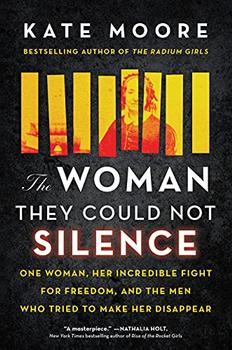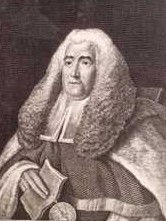Summary | Excerpt | Reading Guide | Reviews | Beyond the Book | Read-Alikes | Genres & Themes | Author Bio
One Woman, Her Incredible Fight for Freedom, and the Men Who Tried to Make Her Disappear
by Kate Moore

Critics' Opinion:
Readers' Opinion:
First Published:
Jun 2021, 560 pages
Paperback:
Feb 2022, 560 pages
 Book Reviewed by:
Book Reviewed by:
Nichole Brazelton
Buy This Book
This article relates to The Woman They Could Not Silence
 As is made clear in Kate Moore's The Woman They Could Not Silence, the laws of coverture were to blame for the abuse, institutionalization and subsequent poverty Elizabeth Packard suffered at the hands of her husband and other men in her community. Brought to North America by English colonizers, "coverture" was a common law that made married women completely dependent on their husbands. The word "coverture" comes from Old French and means "to cover." Under coverture, women were fully "covered" by the legal identity of their husbands. This meant that, once married, a woman effectively no longer existed in the eyes of the law.
As is made clear in Kate Moore's The Woman They Could Not Silence, the laws of coverture were to blame for the abuse, institutionalization and subsequent poverty Elizabeth Packard suffered at the hands of her husband and other men in her community. Brought to North America by English colonizers, "coverture" was a common law that made married women completely dependent on their husbands. The word "coverture" comes from Old French and means "to cover." Under coverture, women were fully "covered" by the legal identity of their husbands. This meant that, once married, a woman effectively no longer existed in the eyes of the law.
The judge William Blackstone provided the first written description of English coverture in 1765, writing, "By marriage, the husband and wife are one person in law: that is, the very being or legal existence of the woman is suspended during the marriage, or at least is incorporated and consolidated into that of the husband; under whose wing, protection, and cover, she performs every thing; and is therefore called in our law-French a feme-covert…"
Under coverture, women were prohibited from controlling their income (if they were allowed to earn any), owning any property (including their clothing) and obtaining an education without their husband's permission. The rules of coverture also stripped women of all parental rights so that, in the case of divorce or separation, a mother could not be the legal guardian of her own children. Physically, coverture allowed a man total and free access to his wife's body for any purpose, stopping just short of permitting murder.
Unmarried women, including widows, were called "femes soles," or "women alone," and were granted more legal rights than their married counterparts. Unmarried women were permitted to own property, and support themselves in any occupation that was not restricted by license or degree to men. However, widows were still not allowed by law to be named guardians of their children. Additionally, their property rights were limited to that which they had brought into their marriage (known as a "dower") and to only one-third of their husband's estate.
There was no official abolition of coverture in the United States. It was gradually disassembled through legislation establishing women's property rights, beginning in Mississippi in 1839 and continuing across the country over the following decades. It is worth noting that these early laws only applied to white women and the first largely concerned their right to own enslaved people. Some vestiges of coverture remained well into the 20th century and beyond. Women were not allowed to open a line of credit in their name until the 1970s, and it wasn't until the 1990s that marital rape was considered illegal in every state. Today, it is still generally assumed that a woman will take her husband's last name upon marriage. Piece by piece, the remains of coverture have been, and continue to be, dismantled. Women's rights have increased mightily since the time of Elizabeth Packard, but still we battle for full equality and total autonomy.
William Blackstone, as illustrated in his Commentaries on the Law of England (1809), via Wikimedia Commons
Filed under Society and Politics
![]() This "beyond the book article" relates to The Woman They Could Not Silence. It originally ran in July 2021 and has been updated for the
February 2022 paperback edition.
Go to magazine.
This "beyond the book article" relates to The Woman They Could Not Silence. It originally ran in July 2021 and has been updated for the
February 2022 paperback edition.
Go to magazine.





The Flower Sisters
by Michelle Collins Anderson
From the new Fannie Flagg of the Ozarks, a richly-woven story of family, forgiveness, and reinvention.

The House on Biscayne Bay
by Chanel Cleeton
As death stalks a gothic mansion in Miami, the lives of two women intertwine as the past and present collide.

The Funeral Cryer by Wenyan Lu
Debut novelist Wenyan Lu brings us this witty yet profound story about one woman's midlife reawakening in contemporary rural China.
Your guide toexceptional books
BookBrowse seeks out and recommends the best in contemporary fiction and nonfiction—books that not only engage and entertain but also deepen our understanding of ourselves and the world around us.